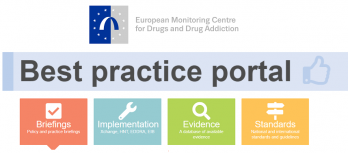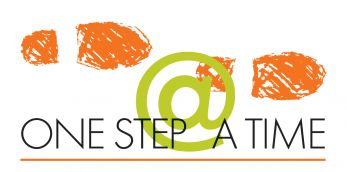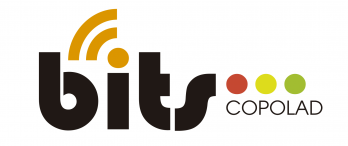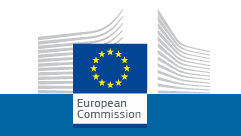-
2nd COPOLAD II Working Group 1 meeting on Precursors
Drugs Supply Reduction
 See more
See moreA follow-up meeting of the first meeting of the working group in this field, organized in Lisbon (Portugal) on November 12, 2018. Its objective is to progress in the analysis of the case studies that are currently being prepared by the member countries of the group. Once their cases are presented, they will work afterward together on recommendations and lessons learned.
-
2nd COPOLAD II Working Group 2 meeting on Precursors
Drugs Supply Reduction
-
Expert consultation on harmonization of mechanisms and tools to ensure Quality: UNODC-PAHO / WHO and COPOLAD
Crosscutting issues
Drugs Demand Reduction
 See more
See moreThe objective is to agree on a set of common essential criteria that will constitute the tool to ensure quality agreed upon from the previous validation processes carried out by UNODC-WHO and COPOLAD. In addition, we work on the outline of a common implementation protocol to be used by both organizations in their work with countries interested in improving their drug treatment systems and services, in line with the UNODC - WHO International Standards for treatment. of drug use disorders and quality standards previously agreed by the CELAC countries within the framework of COPOLAD.
-
Meeting for the Drug Demand Reduction Planning in the Americas in 2019
Crosscutting issues
Drugs Demand Reduction
 See more
See moreThe purpose of this meeting is to present the projects of Drug Demand Reduction (RDD) that are being carried out by each organization invited to the meeting (Inter-American Observatory on Drugs (OID) / CICAD, the Office of International Affairs of Narcotics and Law Enforcement (INL), the Cooperation Programme between Latin America, the Caribbean and the European Union in Drugs Policies (COPOLAD), the Latin American Federation of Therapeutic Communities (FLACT), the Ibero-American Network of Non-Governmental Organizations that work in Drugs and Addictions (RIOD), the International Society of Substance Use Professionals (ISSUP), the International Consortium of Universities for the Demand Reduction of Drugs (ICUDDR)). In addition, the sessions explore the possibilities of executing joint programs, as well as the review of strategies and objectives for projects in the region. COPOLAD presents the training actions, validation of quality criteria and development of planning and evaluation instruments, which is being carried out in the area of Drug Demand Reduction.
On behalf of the Inter-American Drug Abuse Control Commission (CICAD), Adam Namm, Executive Secretary, and by the US Department of State, Brian Harris, Director of the Office of Programming, Coordination and Policy from the Office of International Affairs of Narcotics and Law Enforcement (INL), give the welcoming words, accompanied by Brian Morales, Director of the NIL Anti-Narcotics Division.
The Inter-American Observatory on Drugs (OID) / CICAD / OAS, presents data on drug use and the challenges and needs in the field of RDD in the hemisphere, as well as the scope of the work of the Expert Group on Reduction of Demand for CICAD for 2019, which is chaired by Chile.
-
2nd Meeting for the validation of basic and advanced quality and evidence-based criteria for treatment and prevention programmes
Drugs Demand Reduction
See moreThis activity closes the validation exercise of the agreed criteria within the framework of COPOLAD among all the countries of Latin America and led by Chile through the National Service for the Prevention and Rehabilitation of Drug and Alcohol Consumption (SENDA). The meeting makes it possible to evaluate the process followed and the challenges faced, as well as to explore the following steps to bring in quality standards as a basis for the establishment of legal frameworks in each country.
The European Commission is preparing a third phase of this programme, therefore COPOLAD will be back at the beginning of 2021.










